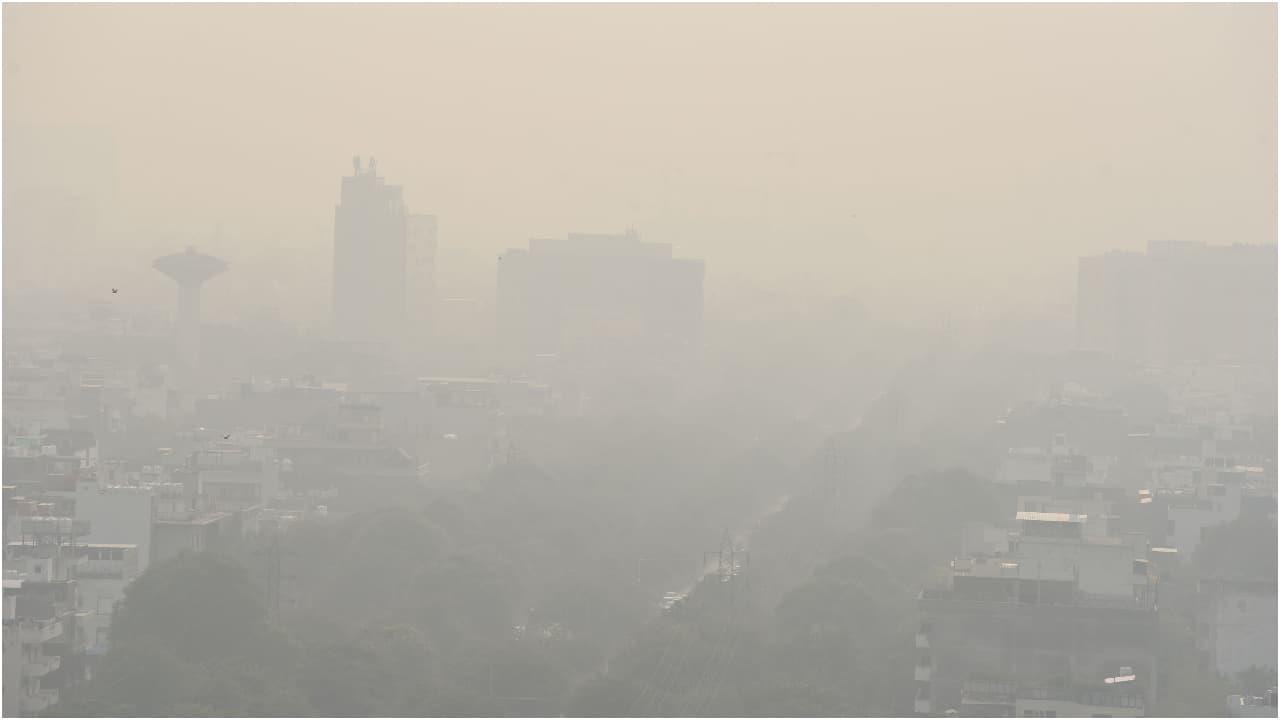
Emergency Over Delhi-NCR Pollution? What GRAP Stage 4 Really Means
Social media and Google searches exploded on Tuesday with claims that Delhi-NCR had entered GRAP Stage 4, the highest level of pollution restrictions. Several news outlets even reported that Stage 4 had been imposed. However, the Commission for Air Quality Management (CAQM) has now officially denied these reports, confirming that GRAP Stage 3 remains in force and no emergency-level restrictions have been activated, according to Indian Express.
According to CAQM, only GRAP Stage 3 remains in effect as of now for Delhi-NCR and there's no change to the existing status, yet.
#AQI of #Delhi today at 4:00 PM (Average of past 24 hours) For more details, kindly visit:#GoGreenBreatheClean twitter/JZjksgK87k
- Commission for Air Quality Management (@CAQM_Official) November 17, 2025
What AQI above 400 means for your health
An AQI of 0-50 is considered good. An AQI of 400 and above is 'severe'. But an AQI close to 600 is far beyond that limit and is seen as extremely toxic even for healthy adults. At this level:
- The air contains extremely high levels of PM2.5 and PM10 particles. These particles enter the lungs and even the bloodstream. Short outdoor exposure can cause breathing trouble, chest tightness, burning eyes, headaches, and coughing. Long exposure can trigger serious health risks. Children are the most vulnerable because their lungs are still developing.
Doctors warn that even 10-15 minutes outdoors in AQI 600 air can cause sudden respiratory stress. At this stage, people are advised to stay indoors, shut windows, run air purifiers if possible, and avoid any physical activity outside.
When is GRAP Stage 4 activated
Stage 4 is enforced only when pollution enters the 'Severe Plus' or 'Emergency' category. This happens when:
- AQI crosses 450 for 48 hours or AQI suddenly spikes far above 500 in a short period.
This week, both situations were seen. Several areas like Anand Vihar, Noida Sector 62, and Narela showed AQI between 580 and 620.
Once Stage 4 is declared, the rulebook demands immediate action to cut pollution sources.
Stage 4: the hardest restrictions now in force
Stage 4 adds the toughest restrictions and includes all actions from Stages 1, 2 and 3.
1. Complete ban on truck entry into Delhi
All trucks and commercial vehicles except those carrying essentials are banned from entering Delhi. Only the following can enter:
- CNG trucks Electric trucks LNG trucks BS-VI diesel vehicles carrying essential goods
This restriction is meant to reduce diesel pollution, a major contributor to winter smog.
2. Complete halt of construction work
All construction work across Delhi-NCR is stopped, including:
- Government projects Public infrastructure work Private building sites Road repairs Excavation, drilling, piling and demolition
Construction dust is one of the biggest pollution sources in winter. The earlier Stage 3 ban on private construction has now been extended to all public work too.
3. Ban on non-essential commercial vehicles
Commercial vehicles coming from outside the NCR are not allowed to enter unless they run on CNG or BS-VI diesel. This aims to sharply reduce traffic emissions.
4. 50% work-from-home
All government and private offices have been directed or allowed to shift 50% of their staff to work-from-home. This is meant to reduce the number of vehicles on the road by half.
5. All restrictions from earlier stages also apply
This means:
- Ban on diesel generators Strict action on waste burning Increased parking fees Ban on BS-III and BS-IV diesel vehicles Halt on non-essential construction Dust suppression and anti-smog water sprinkling Possible school closures depending on conditions
Together, these rules create the strongest possible emergency response to the toxic air.
Understanding how GRAP stages work
The Graded Response Action Plan has four stages:
Stage 1: Moderate to Poor
- Ban on coal use in eateries No open waste burning
Stage 2: Very Poor
- Ban on diesel generator sets Higher parking fees Anti-smog water sprinkling Possible entry restrictions on older diesel vehicles
Stage 3: Severe
- Ban on BS-III and BS-IV diesel vehicles Stop non-essential construction Check stone crushers and mining Possible closure of schools up to Class 5
Stage 4: Severe Plus (Emergency)
- Ban on truck entry Suspension of all construction 50% work-from-home Ban on non-essential commercial vehicles All previous restrictions enforced together
Delhi High Court plea: stop outdoor school sports in winter
The toxic air matter has also reached the Delhi High Court, where a group of minor schoolchildren filed a plea asking for a ban on outdoor sports from November to January.
The petition, filed in the case Nyasa Bedi & Ors. vs Government of NCT of Delhi, argues that sports events during severe pollution months put thousands of children at serious health risk. The students argue that:
- Children are a vulnerable group AQI regularly enters the severe zone in winter Outdoor sports violate their right to life and health Long-term exposure causes permanent lung damage
The plea notes that in 2023, the Delhi government stopped all sports due to pollution but later resumed them without solving the issue.
The students now want the courts to order that all major sports trials and tournaments be held outside the polluted months.
Officials urge residents to stay indoors
As the AQI stays high, people are advised to:
- Avoid going out unless necessary Wear N95 masks outdoors Stop morning walks and jogging Keep children indoors Follow health advisories Avoid burning any waste Reduce vehicle use
Delhi-NCR continues to face one of its worst pollution phases, and experts expect the air to remain toxic for several days until strong winds or rain provide relief.
(With ANI inputs)
Legal Disclaimer:
MENAFN provides the
information “as is” without warranty of any kind. We do not accept
any responsibility or liability for the accuracy, content, images,
videos, licenses, completeness, legality, or reliability of the information
contained in this article. If you have any complaints or copyright
issues related to this article, kindly contact the provider above.


















Comments
No comment